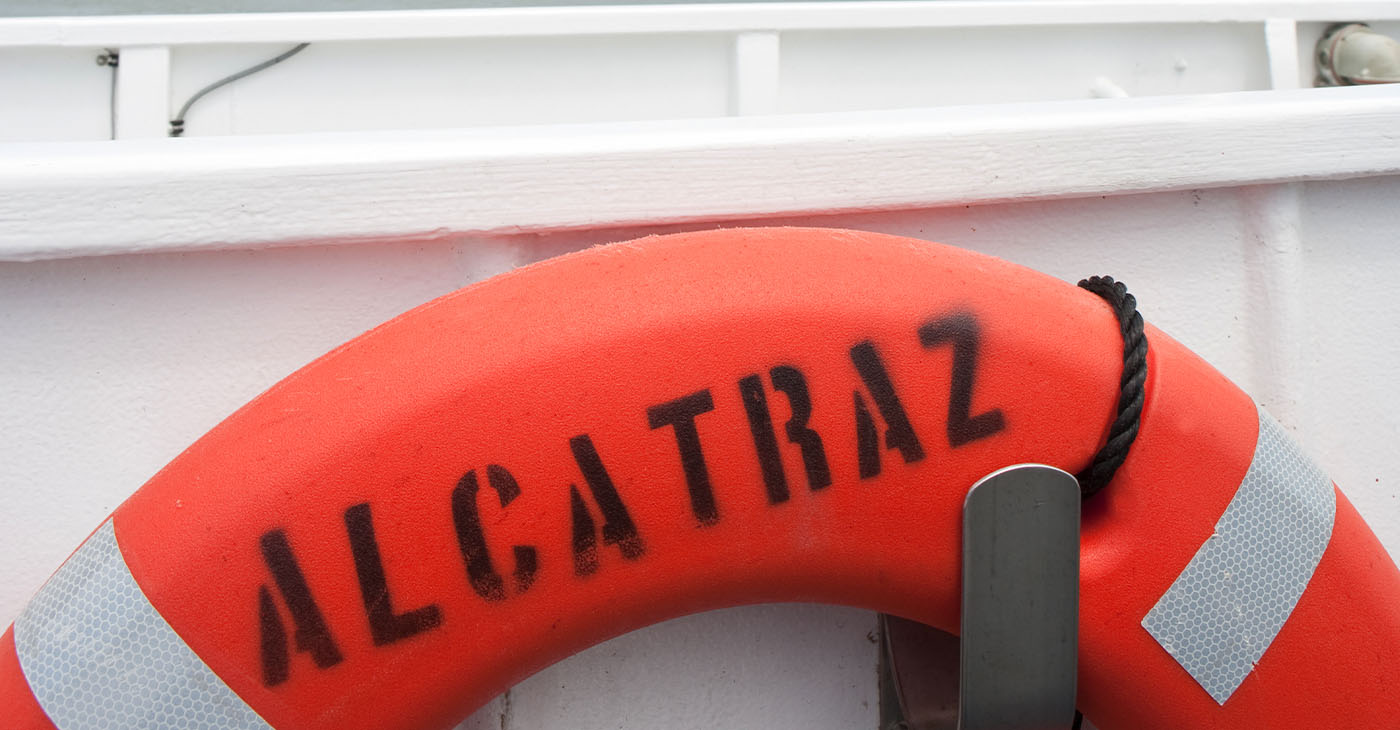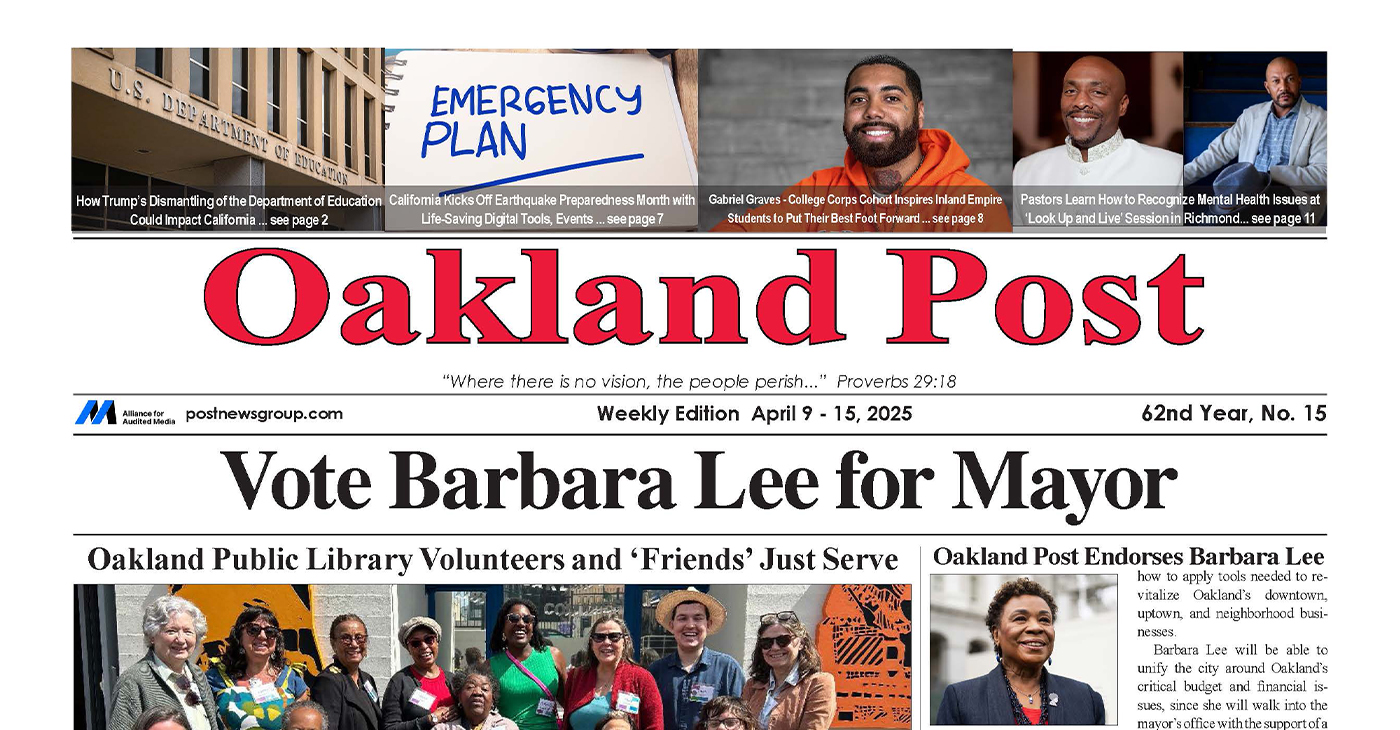Bay Area
Alcatraz Ferry Workers Want to Unionize
If the workers do secure a union, it won’t be the first time Alcatraz ferry workers have been unionized. The companies that had operated the ferry from its opening in 1973 until 2006, had always hired union workers. But when Hornblower Group took over the ferry in 2006, they set up Alcatraz Cruises, an operation that representation for ferry workers, and the Alcatraz ferry workers have been nonunion since then.

By Zack Haber | Post News Group
Workers who operate and provide services to customers riding the ferry that runs from San Francisco’s Pier 33 to Alcatraz Island are attempting to form a union.
“I think if we formed a union this would be a happy place,” said Erik Anfinson, who works as a captain with Alcatraz Cruises, which operates the ferry. “We used to have that, but now it’s gone.”
Anfinson feels that working conditions and morale have deteriorated since the ferry reopened post-COVID. He’s one of 68 workers who signed a letter in mid-July asking Hornblower Group, the company that runs Alcatraz Cruises, to recognize their union. About 85 employees, according to Anfinson, work at the ferry. These employees include other captains, as well as deckhands, maintenance, ticket booth, and food and beverage workers.
Hornblower Group has chosen not to honor the workers’ request for them to voluntarily recognize their union.
“We enjoy and value being able to directly communicate with our employees, and believe that the company, our employees and our guests are better served when such communications occur directly between the company and its employees rather than through any third party, including a labor organization,” reads a statement that Hornblower Group Vice President of Communications Melissa Gunderson emailed to this reporter.
Ultimately, the workers are attempting to unionize by joining the Inlandboatmen’s Union of the Pacific, which is also known as the IBU, and is a part of the International Longshore and Warehouse Union (ILWU). A recent post on an Instagram account representing the proposed Alcatraz ferry union says, “We are organizing because we deserve fair scheduling, predictable raises, job security, adequate training, respect and a seat at the table.”
For the union drive to be successful, workers will have to go through a formal vote organized by the National Labor Review Board. They currently are working through that process and hope to unionize in coming weeks.
If the workers do secure a union, it won’t be the first time Alcatraz ferry workers have been unionized. The companies that had operated the ferry from its opening in 1973 until 2006, had always hired union workers. But when Hornblower Group took over the ferry in 2006, they set up Alcatraz Cruises, an operation that opposes representation for ferry workers, and the Alcatraz ferry workers have been nonunion since then.
Anfinson hopes that a union contract will help him secure some stability with his work schedule. He says his work hours change from week to week in an unpredictable manner.
“I want to know when I can make doctor and dentist appointments,” he said. “Not having a set schedule makes it tough, you can’t plan anything.”
In her email, Gunderson, of Hornblower, attributed the unpredictability to problems related to COVID, but said that the situation is now becoming better.
“Like most employers across a host of industries, the pandemic caused staffing challenges at Alcatraz City Cruises, and this issue was compounded by unpredictable government restrictions and related tourist demand that rapidly changed with COVID variants,” said Gunderson’s email.
Gunderson did not respond when asked to provide current and pre-COVID staff numbers. According to Anfinson, Alcatraz Cruises has less than half the employees it had before COVID, which forces him and other workers to take on more tasks and work longer hours than they used to.
“They don’t want to hire more employees, and I don’t know why,” said Anfinson. “I think they’re just trying to cut back on everything.”
An Alcatraz ferry worker, who asked not to be named due to fears of retaliation, told this reporter they feel a union could help workers secure safer working conditions and a smoother, safer operation for customers. Workers expressed frustration at unnecessary ferry delays that occur multiple times a week and described sewage lines backing up and overflowing at least three times this year.
“I’m concerned for the safety and well-being of my co-workers and the guests,” said the worker. “I really feel the union would have our back and give us an added protection.”
A worker criticized the company for hiring two business consultants they say have been talking with staff to dissuade them from unionizing. The consultants work for The Redd Group, a company that lists “union prevention” as a service it offers on its website. The worker wishes the money Hornblower spends on consultants could go elsewhere.
“That money would be better spent doing permanent repair work on our boats,” the worker said.
In her emailed statement, Gunderson compared their two consultants to Northern California ILWU Organizer Evan McLaughlin, since all three people are paid to talk with workers about union-related issues.
“It would be unfair to let the union tell our employees only one side of the story,” Gunderson wrote. “We have engaged these consultants to ensure that our employees are informed, hearing both the pros and cons of unionizing from credible sources with knowledge of union governance and dues.”
“We’ve been talking about unionizing for years,” said Anfinson. “But they let people go during the offseason and we have to start all over; it’s like a revolving door.”
Anfinson feels an urgency to get to the vote soon, and that momentum is building for a unionization. On Sunday, at noon, the workers are hosting an event, which is open to the public, at Pier 33 in San Francisco, to celebrate their union’s formation, and show the worker’s optimism.
“I think the work atmosphere will be better,” said Anfinson. “I feel confident like there’s going to be some change.”
Activism
Oakland Post: Week of April 23 – 29, 2025
The printed Weekly Edition of the Oakland Post: Week of April 23 – 29, 2025

To enlarge your view of this issue, use the slider, magnifying glass icon or full page icon in the lower right corner of the browser window.
Activism
Oakland Post: Week of April 16 – 22, 2025
The printed Weekly Edition of the Oakland Post: Week of April 16 – 22, 2025

To enlarge your view of this issue, use the slider, magnifying glass icon or full page icon in the lower right corner of the browser window.
Activism
Oakland Post: Week of April 9 – 15, 2025
The printed Weekly Edition of the Oakland Post: Week of April 9 – 15, 2025

To enlarge your view of this issue, use the slider, magnifying glass icon or full page icon in the lower right corner of the browser window.
-

 Activism3 weeks ago
Activism3 weeks agoOakland Post Endorses Barbara Lee
-

 Activism4 weeks ago
Activism4 weeks agoOakland Post: Week of March 28 – April 1, 2025
-

 Activism3 weeks ago
Activism3 weeks agoOakland Post: Week of April 2 – 8, 2025
-

 #NNPA BlackPress3 weeks ago
#NNPA BlackPress3 weeks agoTrump Profits, Black America Pays the Price
-

 Activism2 weeks ago
Activism2 weeks agoOakland Post: Week of April 9 – 15, 2025
-

 #NNPA BlackPress3 weeks ago
#NNPA BlackPress3 weeks agoHarriet Tubman Scrubbed; DEI Dismantled
-

 #NNPA BlackPress3 weeks ago
#NNPA BlackPress3 weeks agoLawmakers Greenlight Reparations Study for Descendants of Enslaved Marylanders
-

 #NNPA BlackPress3 weeks ago
#NNPA BlackPress3 weeks agoTrump Targets a Slavery Removal from the National Museum of African-American History and Culture




















































